How the UN is helping to combat the changing tactics of the region's crime gangs
Interview with Jeremy Douglas, Regional Representative of the United Nations Office on Drugs and Crime (UNODC) for Southeast Asia and the Pacific
By MAXMILIAN WECHSLER
By MAXMILIAN WECHSLER
• Changes in the drug market the past few years have impacted Thailand as organized crime groups have increased production and diversified into powerful and valuable drugs like crystal methamphetamine and ketamine.
• The expansion of the drug trade has meant a corresponding expansion of money laundering and other related crimes, leading to an explosion of the prison population.
• The region needs to ask itself why the drug trade continues to expand here, who is behind it or benefiting from it and how they use the region to expand it.
• Thailand is a logistics hub for the Mekong region and a lot of the drugs trafficked into the country are for transit to Malaysia or to places like Australia, New Zealand, Japan or Korea.
• There are a lot of aligned but different businesses that go hand-in-hand with the drug trade, for example casinos which are often in border areas and the trade in chemicals used to produce synthetic drugs.
• The expansion of the drug trade has meant a corresponding expansion of money laundering and other related crimes, leading to an explosion of the prison population.
• The region needs to ask itself why the drug trade continues to expand here, who is behind it or benefiting from it and how they use the region to expand it.
• Thailand is a logistics hub for the Mekong region and a lot of the drugs trafficked into the country are for transit to Malaysia or to places like Australia, New Zealand, Japan or Korea.
• There are a lot of aligned but different businesses that go hand-in-hand with the drug trade, for example casinos which are often in border areas and the trade in chemicals used to produce synthetic drugs.
Besides criminal justice and drug-related matters, his office is focused on non-traditional security threats and issues related to the rule of law and public health. Mr Douglas is also the UNODC liaison to China, Korea, Japan and Mongolia and to regional organisations including the Association of Southeast Asian Nations (ASEAN) and Pacific Islands Forum Secretariat (PIFS). He is based at the UNODC’s regional office at the UN building in Bangkok.
Narcotics and Thailand
“Thailand has a significant drug problem that is linked to the situation in the Golden Triangle and Myanmar,” says Mr. Douglas. “Developments and rapid changes in the drug market the past few years have really impacted the country. The synthetic drug supply has expanded and changed as organized crime groups have increased production. They have diversified their products into powerful and valuable drugs like crystal methamphetamine and ketamine, but there is still some heroin produced and trafficked in the region.
“The expansion of the drug trade has meant a corresponding expansion of money laundering and other related crimes. Sadly, it has also led to an explosion of the prison population and already over-stretched drug treatment system. But we can’t forget the country has had a longstanding problem with methamphetamine pills or yaba, and what has happened more recently has in a sense been an accelerated evolution of that situation.
“As I’ve mentioned, we help with other crimes besides drugs as well as governance challenges. While we assist regional governments and key institutions with solutions and capacities, we do so with an eye to how this impacts communities and people. Helping those most impacted by the illegal drugs trade and other crimes is why we do our job.”
Asked what he sees as the biggest difficulty in tackling the drug problem in Thailand, Mr Douglas replied: “Where to begin – this is really an enormous question. We advise and try to approach the drug challenge holistically and strategically by looking at the different aspects of production, trafficking and use. We offer practical help to Thailand and the region with different programs and projects that enable police and justice agencies, border officials, regulators and health authorities, to cooperate and better understand a situation and respond to it.
“But given the enormity of the challenge, it can’t simply be approached using narrow or siloed approaches and responses, just by policing or treating the problem. Having spent a significant amount of time in the region over the years, and watching the problem expand time and again, I keep coming back to the fact we have to address the root causes, those things that allow the expansion. And to do that it means the region needs to have a candid conversation with itself about why the drug trade continues to expand here, who is behind it or benefiting from it and how they use the region to expand it, and really take a hard look at how damaging it is to the countries and the people of the region. It’s not exactly a comfortable conversation, but it needs to happen.”
When asked what percentage of drugs produced in the region and trafficked through Thailand are intended for the Thai market, Mr Douglas replied: “It is difficult to say in percentage terms given that Thailand is a logistics hub for the Mekong region and a lot of the drugs that are trafficked into the country are for transit to Malaysia or to places like Australia, New Zealand, Japan or Korea. But Thailand is a large market with a significant and possibly growing demand, and so a lot of yaba, crystal meth and other drugs trafficked in would be for the country itself.”
He added that measuring the volume of the drug trade based on seizures alone is not possible. “This approach is severely limiting when it comes to synthetic or chemical drugs that can be made practically anywhere and can’t be measured like plant-based drugs. It is also important not to get overly enthusiastic about seizures; they matter as they can keep dangerous drugs off the streets, but they are incidents in a larger trade and drugs are replaceable.
“Law enforcement efforts need to be joined with efforts to address governance issues in production areas and related root causes. We need to look at the trade in precursor chemicals and how they feed into production and with market demand, and the impacts of drug use on people and communities.”
Mr Douglas noted that the United Wa State Army (UWSA) and other militias in Myanmar are often accused of running the regional drug trade, but he stressed that this isn’t the whole story. “There is no doubting their history and that they have benefited and still benefit enormously from the drug trade. But there are also major organized crime groups from outside the immediate region involved in the innovation and expansion I touched on, groups that have helped diversify the types of drugs produced and that have extended the reach of the Golden Triangle to the point it is a global production hub for synthetic drugs.
“It is important that the UWSA and the role of militias not be looked at through a historical perspective, or be romanticized. They became powerful through the drug trade and remain powerful and connected to it, but they have also added to what they do, and they have partnered along the way. Interestingly there are a lot of aligned but different businesses that go hand-in-hand with the drug trade, for example casinos which are often in border areas and the trade in chemicals used to produce synthetic drugs. It is one thing to leave the trade, but it is then still possible to work with it.”
“The expansion of the drug trade has meant a corresponding expansion of money laundering and other related crimes. Sadly, it has also led to an explosion of the prison population and already over-stretched drug treatment system. But we can’t forget the country has had a longstanding problem with methamphetamine pills or yaba, and what has happened more recently has in a sense been an accelerated evolution of that situation.
“As I’ve mentioned, we help with other crimes besides drugs as well as governance challenges. While we assist regional governments and key institutions with solutions and capacities, we do so with an eye to how this impacts communities and people. Helping those most impacted by the illegal drugs trade and other crimes is why we do our job.”
Asked what he sees as the biggest difficulty in tackling the drug problem in Thailand, Mr Douglas replied: “Where to begin – this is really an enormous question. We advise and try to approach the drug challenge holistically and strategically by looking at the different aspects of production, trafficking and use. We offer practical help to Thailand and the region with different programs and projects that enable police and justice agencies, border officials, regulators and health authorities, to cooperate and better understand a situation and respond to it.
“But given the enormity of the challenge, it can’t simply be approached using narrow or siloed approaches and responses, just by policing or treating the problem. Having spent a significant amount of time in the region over the years, and watching the problem expand time and again, I keep coming back to the fact we have to address the root causes, those things that allow the expansion. And to do that it means the region needs to have a candid conversation with itself about why the drug trade continues to expand here, who is behind it or benefiting from it and how they use the region to expand it, and really take a hard look at how damaging it is to the countries and the people of the region. It’s not exactly a comfortable conversation, but it needs to happen.”
When asked what percentage of drugs produced in the region and trafficked through Thailand are intended for the Thai market, Mr Douglas replied: “It is difficult to say in percentage terms given that Thailand is a logistics hub for the Mekong region and a lot of the drugs that are trafficked into the country are for transit to Malaysia or to places like Australia, New Zealand, Japan or Korea. But Thailand is a large market with a significant and possibly growing demand, and so a lot of yaba, crystal meth and other drugs trafficked in would be for the country itself.”
He added that measuring the volume of the drug trade based on seizures alone is not possible. “This approach is severely limiting when it comes to synthetic or chemical drugs that can be made practically anywhere and can’t be measured like plant-based drugs. It is also important not to get overly enthusiastic about seizures; they matter as they can keep dangerous drugs off the streets, but they are incidents in a larger trade and drugs are replaceable.
“Law enforcement efforts need to be joined with efforts to address governance issues in production areas and related root causes. We need to look at the trade in precursor chemicals and how they feed into production and with market demand, and the impacts of drug use on people and communities.”
Mr Douglas noted that the United Wa State Army (UWSA) and other militias in Myanmar are often accused of running the regional drug trade, but he stressed that this isn’t the whole story. “There is no doubting their history and that they have benefited and still benefit enormously from the drug trade. But there are also major organized crime groups from outside the immediate region involved in the innovation and expansion I touched on, groups that have helped diversify the types of drugs produced and that have extended the reach of the Golden Triangle to the point it is a global production hub for synthetic drugs.
“It is important that the UWSA and the role of militias not be looked at through a historical perspective, or be romanticized. They became powerful through the drug trade and remain powerful and connected to it, but they have also added to what they do, and they have partnered along the way. Interestingly there are a lot of aligned but different businesses that go hand-in-hand with the drug trade, for example casinos which are often in border areas and the trade in chemicals used to produce synthetic drugs. It is one thing to leave the trade, but it is then still possible to work with it.”
Working together
“We have excellent day-to-day cooperation with the Thai authorities and those of other Mekong and ASEAN countries. As I said, our role is also to help broker cooperation across borders, and with the transnational trade and criminal organizations and the politics between countries sometimes difficult, due in part to geopolitical tensions around security issues, this role is increasingly important. The more fundamental governance issues I have raised are where more candor and cooperation is needed between the countries of the region and with international partners.
“I am a Canadian national serving in the UNODC for 18 years, from 2002-2007 as a program manager in Southeast Asia based in Bangkok. In 2008 I was assigned briefly as a manager in UNODC’s Vienna headquarters. In 2009 I went to Pakistan and served as UNODC representative there before coming back to Bangkok in 2013. Before joining the UNODC I worked as an advisor with the Canadian government and then briefly at the UN Headquarters in New York. I am a graduate of the London School of Economics in the UK and Bishop’s University in Canada.”
In closing Mr Douglas said Southeast Asia and in particular Thailand is like a second home for him. “I truly enjoy my work and am honoured to serve in my role here and to work with incredible colleagues and counterparts. If I am lucky enough I will be able to continue here for a while and help as best I can.”
“I am a Canadian national serving in the UNODC for 18 years, from 2002-2007 as a program manager in Southeast Asia based in Bangkok. In 2008 I was assigned briefly as a manager in UNODC’s Vienna headquarters. In 2009 I went to Pakistan and served as UNODC representative there before coming back to Bangkok in 2013. Before joining the UNODC I worked as an advisor with the Canadian government and then briefly at the UN Headquarters in New York. I am a graduate of the London School of Economics in the UK and Bishop’s University in Canada.”
In closing Mr Douglas said Southeast Asia and in particular Thailand is like a second home for him. “I truly enjoy my work and am honoured to serve in my role here and to work with incredible colleagues and counterparts. If I am lucky enough I will be able to continue here for a while and help as best I can.”
How UNODC works
“The UNODC has a broad range of mandates from the global drug and crime commissions and UN General Assembly, as well as different international conventions on drugs, transnational organized crime and corruption, and agreements on terrorism. Our priorities are really set based on needs that are most significant in a particular country or part of the region.
“For example, here in Thailand we have a strong focus on the regional drug problem, which is a particularly difficult challenge for the country, surrounding Mekong countries and ASEAN. But my team also works with Thailand on border security, human trafficking, cyber-crime, money laundering, anti-corruption, criminal justice reform and terrorism. In other countries and parts of the region we assist on similar issues, but the approach varies to some extent depending on the situation and needs.
“Something we do well, and something I am particularly proud of, is our ability to help countries collaborate and work together to set priorities and implement shared plans. This is especially important given that many of our mandates are transnational and interface with sensitive public security matters. In this respect it helps that UNODC is politically neutral.
“Our Bangkok Regional Office covers 33 countries stretching from Myanmar across the Pacific, and acts as liaison to Northeast Asia. We have approximately 200 staff in the region at six country offices and a few sub-national offices, as well as some staff based in UN
offices in other countries where we lack our own office. We oversee UNODC’s largest geographic region, and have one of its most diverse and skilled teams to handle a very large volume of programming needs.
“In a normal year - I should say non-COVID year - we run hundreds of activities including mentoring and training sessions, cross-border meetings and joint planning events, and we provide legal, strategic and policy advice. At the same time collect, manage, analyze and publish information. We are still delivering on all these relevant activities across the region despite COVID, largely in-part because of our footprint and excellent team, but we’ve had to adapt and use different methods to compensate for the restricted mobility.
“We report to our clients -- which are the countries of the region -- and to our international partners. I myself report to executive and senior management in our Vienna headquarters.”
All photos sy of UNODC.
“For example, here in Thailand we have a strong focus on the regional drug problem, which is a particularly difficult challenge for the country, surrounding Mekong countries and ASEAN. But my team also works with Thailand on border security, human trafficking, cyber-crime, money laundering, anti-corruption, criminal justice reform and terrorism. In other countries and parts of the region we assist on similar issues, but the approach varies to some extent depending on the situation and needs.
“Something we do well, and something I am particularly proud of, is our ability to help countries collaborate and work together to set priorities and implement shared plans. This is especially important given that many of our mandates are transnational and interface with sensitive public security matters. In this respect it helps that UNODC is politically neutral.
“Our Bangkok Regional Office covers 33 countries stretching from Myanmar across the Pacific, and acts as liaison to Northeast Asia. We have approximately 200 staff in the region at six country offices and a few sub-national offices, as well as some staff based in UN
offices in other countries where we lack our own office. We oversee UNODC’s largest geographic region, and have one of its most diverse and skilled teams to handle a very large volume of programming needs.
“In a normal year - I should say non-COVID year - we run hundreds of activities including mentoring and training sessions, cross-border meetings and joint planning events, and we provide legal, strategic and policy advice. At the same time collect, manage, analyze and publish information. We are still delivering on all these relevant activities across the region despite COVID, largely in-part because of our footprint and excellent team, but we’ve had to adapt and use different methods to compensate for the restricted mobility.
“We report to our clients -- which are the countries of the region -- and to our international partners. I myself report to executive and senior management in our Vienna headquarters.”
All photos sy of UNODC.

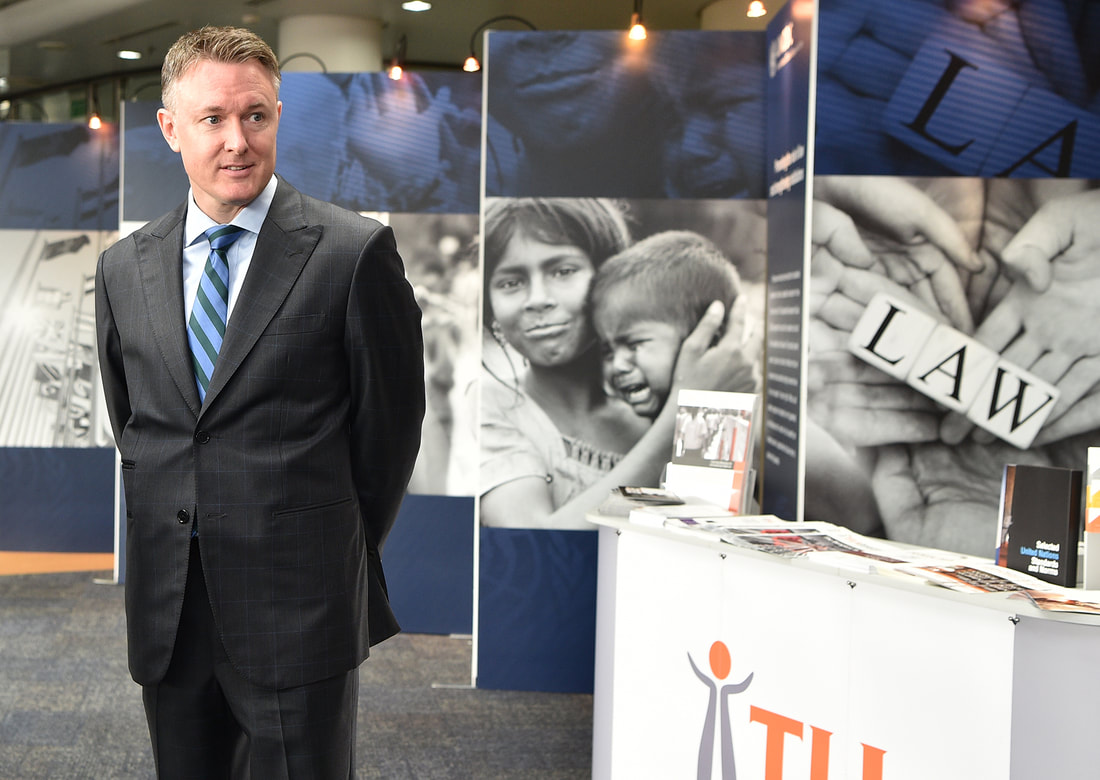
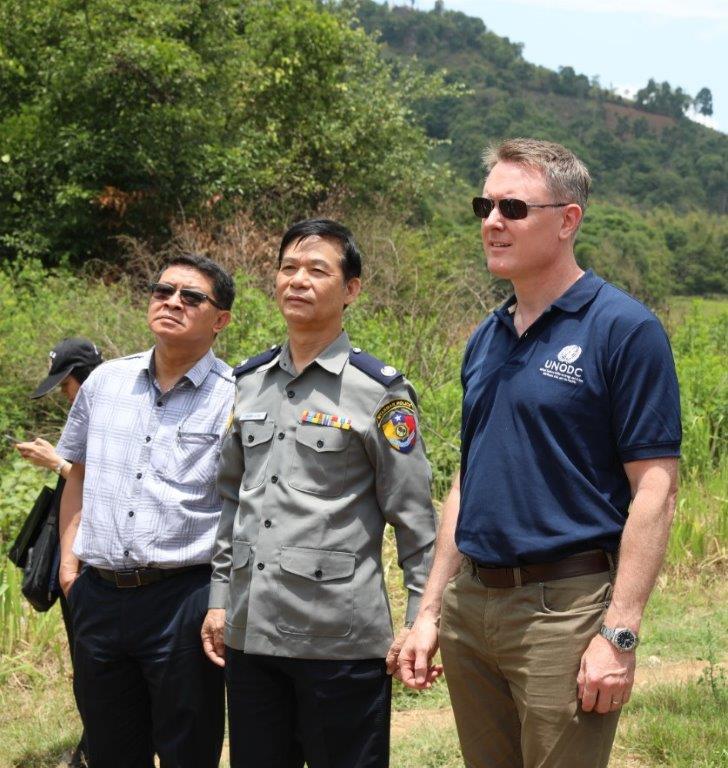
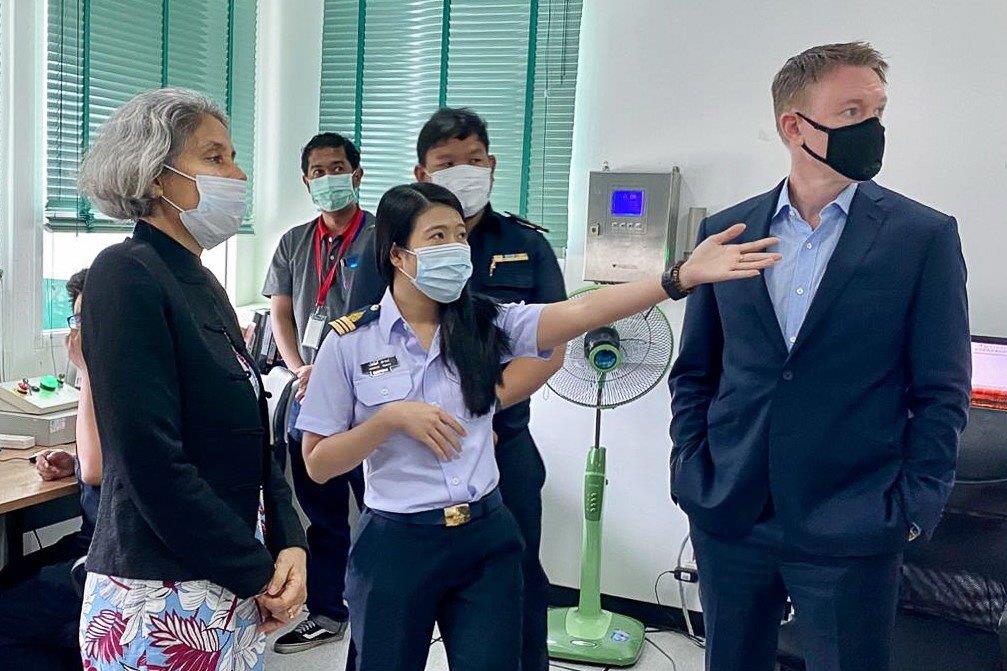
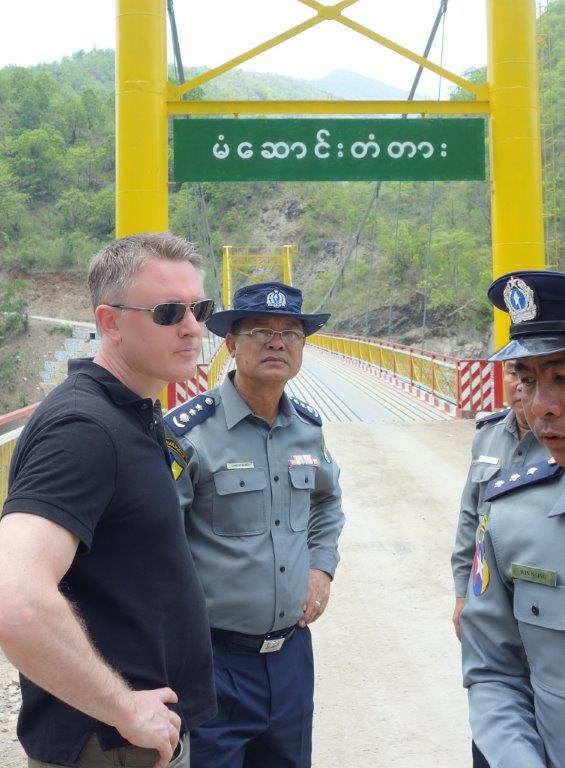
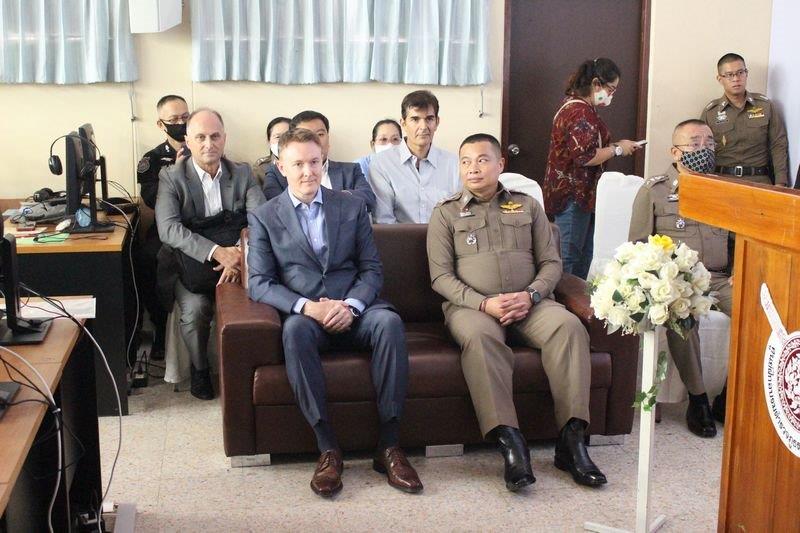

 RSS Feed
RSS Feed
















